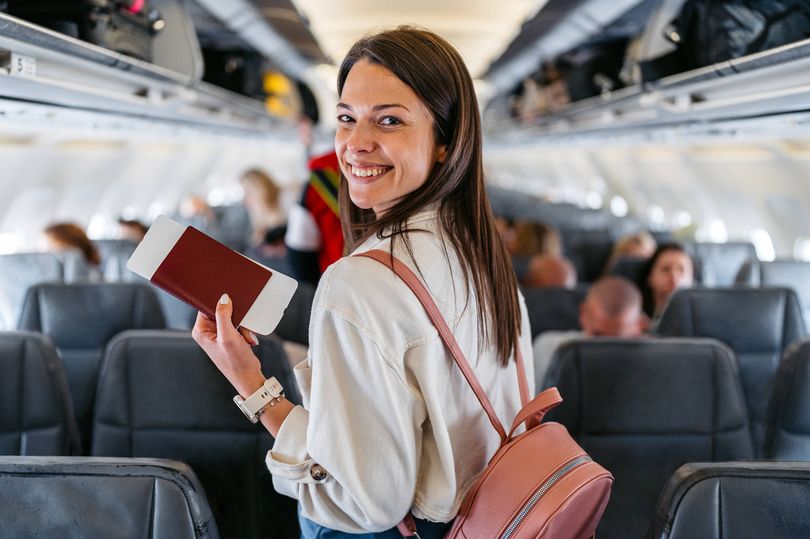Understanding the Impact of Air Travel on the Human Body
As the summer holidays draw near, many people are looking forward to their overseas trips, eager to soak up the sun and explore different cultures around the world. However, while these journeys are exciting, they can sometimes come with unexpected challenges, particularly when it comes to our health. Flying is not a natural mode of transport for humans, and as such, it can have some peculiar effects on our bodies.
The development of air travel has allowed us to traverse the skies at impressive speeds, but this ‘unnatural’ method of travel can lead to various physical and psychological changes. A recent study published in the journal Thorax found that cabin pressure during flights can reduce blood pressure and increase heart rate, even in young and healthy individuals. This effect is further amplified by consuming alcohol during flights, which is why experts advise passengers to limit their intake of alcoholic beverages.
Dr Stephen Hughes, a senior lecturer at Anglia Ruskin University and an emergency medicine consultant, explains that the human body undergoes several transformations during flight. At typical cruising altitudes of around 35,000 feet, the lack of pressurisation would cause a rapid drop in oxygen levels, leading to unconsciousness. To prevent this, aircraft are pressurised to maintain an internal altitude similar to that of climbing halfway up Mont Blanc.
In addition to changes in blood pressure and heart rate, other effects include ‘popping ears’ due to pressure changes, dry eyes from altered humidity, and bloating or a sensation of stomach gas caused by the expansion of gases. Some travellers may also experience deep vein thrombosis (DVT) on long-haul flights, a condition where blood clots form in deep veins. This is often linked to prolonged periods of sitting, which increases the risk of this condition.
Skin changes can also occur during flights, primarily due to dehydration and lower humidity levels. Many passengers report that their skin feels drier after a flight. Mental health can also be affected, as anxious flyers may experience a surge in stress hormones, leading to hyperventilation and increased heart rate. This could worsen any pre-existing heart conditions.
While medical emergencies during flights are rare, the physical strain of flying can contribute to such incidents. Fortunately, there are several measures that can help ensure safety and comfort during a flight.
Staying Hydrated
One of the simplest ways to stay healthy during a flight is to drink plenty of water. Although it might be challenging to do so due to limited access to the bathroom, staying hydrated helps keep your skin moisturised, reduces symptoms like headaches or nausea, and maintains blood pressure. It can also alleviate bloating and digestive issues by promoting gut motility.
Practising Good Hygiene
Maintaining good hand hygiene is crucial, especially on planes, which tend to be drier and more prone to the spread of germs. Wiping down surfaces such as tray tables with antibacterial wipes and washing hands regularly can help reduce the risk of catching a cold or virus.
Managing Ear Pressure
To ease the discomfort of ear-popping during take-off and landing, chewing something or sipping a drink can help. Swallowing opens the Eustachian tube, allowing small amounts of air to enter and balance the pressure in the ears.
Moving Around
Movement is essential, particularly on long-haul flights. While safety guidelines recommend staying seated, standing up to stretch your legs in the aisle or doing simple yoga exercises can improve blood circulation and reduce the risk of blood clots. Wearing compression socks can provide additional protection against DVT.
Eating Wisely
Ensuring your body is well-nourished is important for maintaining digestive health and steady blood sugar levels. While in-flight meals are available, they may not suit everyone’s taste. Healthy snacks, such as bananas, which are rich in magnesium and potassium, can be a good alternative.
If you have any health concerns, it is always advisable to consult your doctor before embarking on a flight. By taking these precautions, you can enjoy your travels while minimising the potential impact on your health.


